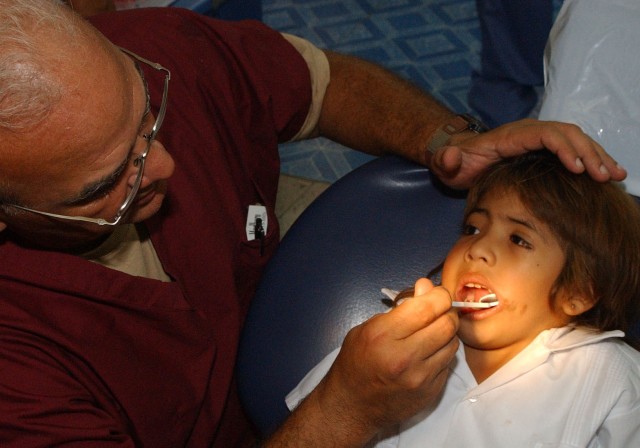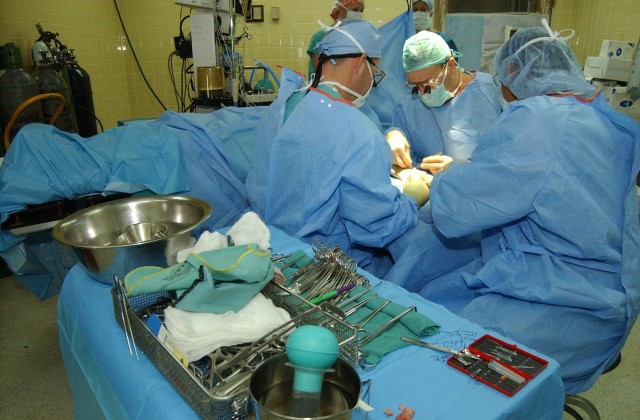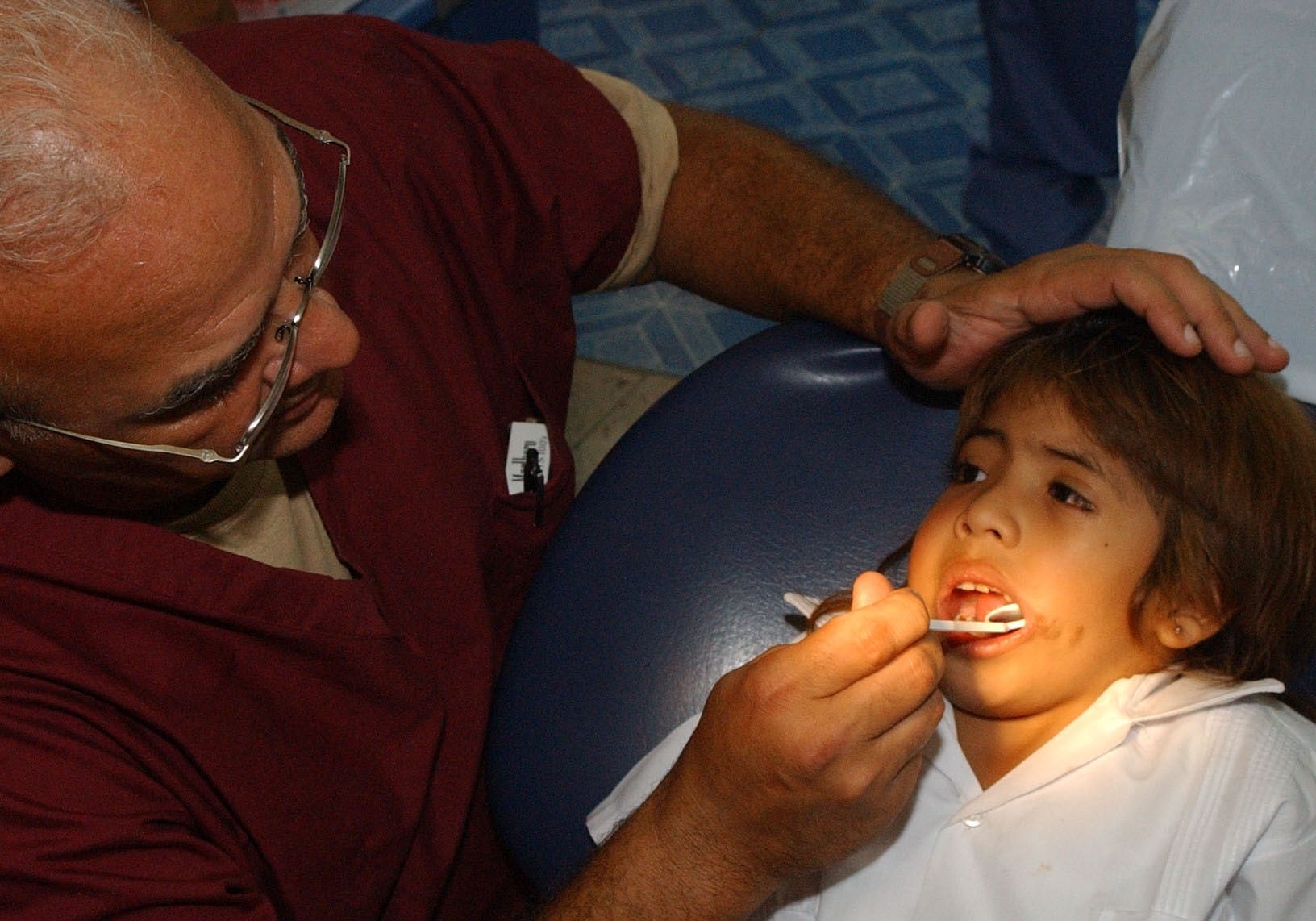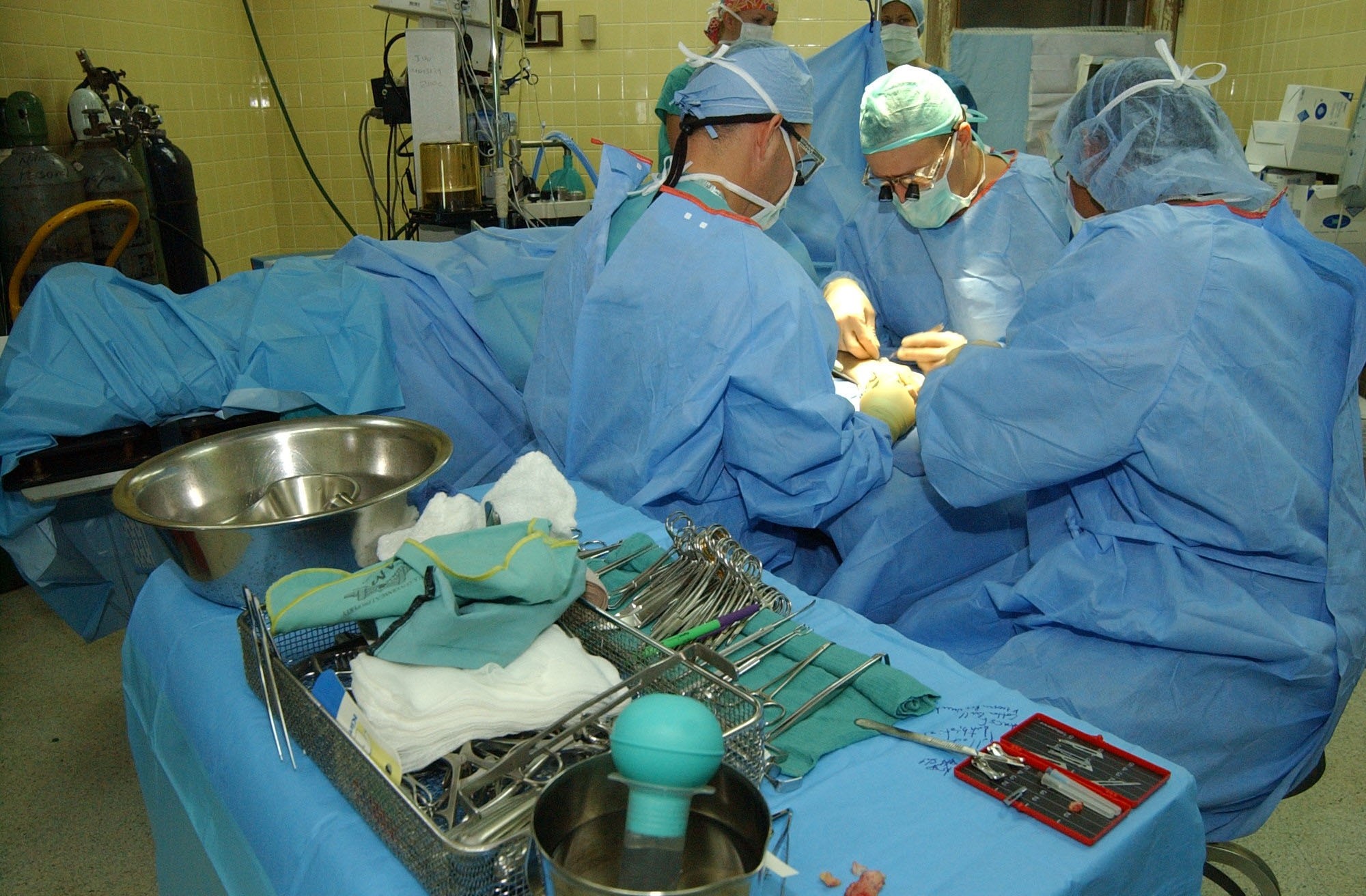WASHINGTON (American Forces Press Service, Aug. 17, 2007) - U.S. military personnel are providing medical and dental services to residents in Honduras during a two-week medical readiness training exercise that kicked off Aug. 13.
Doctors, dentists and dental technicians from multiple military installations throughout the United States are being augmented by medical personnel assigned to Soto Cano Air Base, Honduras, for the exercise.
"The main mission is to train," said Army Lt. Col. Manuel Marien, a pediatric dentist assigned to Fort Hood, Texas, who has performed this mission each of the past six years. "Every year, we come with residents and bring them for the training."
The benefits of conducting the medical training in a foreign country helps the doctors and technicians learn how to work in austere environments. Dentists and technicians are providing dental care to hundreds of Honduran children at the Catholic University Dental School in Tegucicalpa.
"When it comes to improvising, everybody learns. It's like tailgate dentistry," Lt. Col. Marien said. "For military doctors, they'll rarely see this. It's great training for them. If they're deployed to a remote area and they have to treat kids, now they'll know what to do."
The children first were given an educational class on the importance of brushing, flossing and good nutrition. From there, dental hygienists performed cleanings before the dentists began their work.
"There were lots of extractions, fillings and crowns," said Army Capt. Tom Stark, a pediatric dentist from Fort Irwin, Calif. "It's a very high-risk population due to the lack of education, poor diet and lack of fluoride in the water."
Because this was a first-time experience for him, Capt. Stark said he wasn't sure what to expect. "It's been a totally eye-opening experience, and some of the worst cases I've seen since I've been a dentist for the last five years."
Air Force Maj. Kim Christian, a dentist deployed to Soto Cano from Elmendorf Air Force Base, Alaska, said it was a very rewarding experience to be able to help the children who so desperately need dental care.
"We try to do as much as we can on each patient, depending on their needs and what they can tolerate," she said. "But once the problem is gone, a lot of the pain they have is gone too."
In exchange for the use of the dental school's facilities, Lt. Col. Marien provided teaching lectures to the dental students at the university during the exercise. Because Honduras doesn't have pediatric dentistry as a specialty, most of the students were very curious about it.
Dr. Ramses Montes, dean of the dental school, said it's a win-win situation for everyone involved.
"As a dental school, we can't work on the children because a lot of them don't have the money to be seen (by a dentist)," he said. "But the students talk and communicate with the military doctors and get information from them, (even though) some of the procedures are a little advanced and a higher knowledge level."
The team expects to see 200 to 300 patients during the two-week mission. Lt. Col. Marien said last year they saw 286 patients and completed more than 1,800 procedures during the exercise.
While U.S. military dentists worked on children at the university, two U.S. military hand surgeons were bent over the hand of a 64-year old Honduran man in a brightly lit room in Hospital Escuela, also in Tegucicalpa.
The patient was born with a condition that caused his hands to be permanently clenched, explained Army Capt. Heather Higgins, the patient's anesthesiologist from Fort Sam Houston, Texas, as the doctors worked to restore mobility to the man's hand.
The 64-year old man was one of many Honduran patients to be treated by a 15-person hand surgery team made up of medical personnel from several locations throughout the United States.
"This mission is done as humanitarian and civic assistance," said Dr. Ricardo Aviles, a Honduran doctor who works as a liaison with Joint Task Force Bravo from Soto Cano Air Base. Dr. Aviles worked with the medical element from Soto Cano to plan the training exercise.
"The hospitals here are overwhelmed with trauma, so there's no way we can get to elective cases. This (exercise) helps clear that backlog," Dr. Aviles said. "On top of that, since we've started this about eight years ago, there have been two generations of Honduran residents who have trained and exchanged experiences with the U.S. surgeons. Now things they weren't capable of doing in the past can be done, like reattaching a hand."
The Hondurans aren't the only ones who will benefit from the training, said Army Col. Michael Sigmon, commander of the medical element at Soto Cano. The U.S. medical team will benefit as well, he said.
"There are several goals (for the exercise)," Col. Sigmon said. "It gives us an opportunity to work with the Hondurans, it gives us the opportunity to work in austere environments, and we provide a needed care for the patients."
Working with the Honduran doctors also provides learning experiences for the U.S. doctors, said Army Lt. Col. Martin Baechler, a hand surgeon from Walter Reed Army Medical Center in Washington, D.C., who is here on his fifth exercise.
"We share medical knowledge. The Honduran doctors have ways of doing things because of their circumstances here and clever ways of accomplishing their mission that we can learn from," Lt. Col. Baechler said. "And they can learn from the way we do things in the States."
After only one day of surgeries, first-time exercise participant Army Capt. Emerson Coates, an orthopedic surgery resident from Fort Sam Houston, already is reaping the benefits of the exercise.
The cases are a lot more difficult than what doctors would normally see in the United States, because many times the injuries have been neglected for several years, he said. However, the experience will make him a better doctor, he added.
"Personally, it's fulfilling and satisfying to be able to help, because these folks wouldn't be able to have their surgeries if we hadn't come down here," Capt. Coates said.
By the end of the exercise, 15 U.S. medical personnel and about 45 Honduran surgery patients will have experienced the partnership between the United States and Honduras first-hand.
(Air Force 1st Lt. Erika Yepsen and Tech. Sgt. Sonny Cohrs of Joint Task Force Bravo Public Affairs contributed to this article.)




Social Sharing